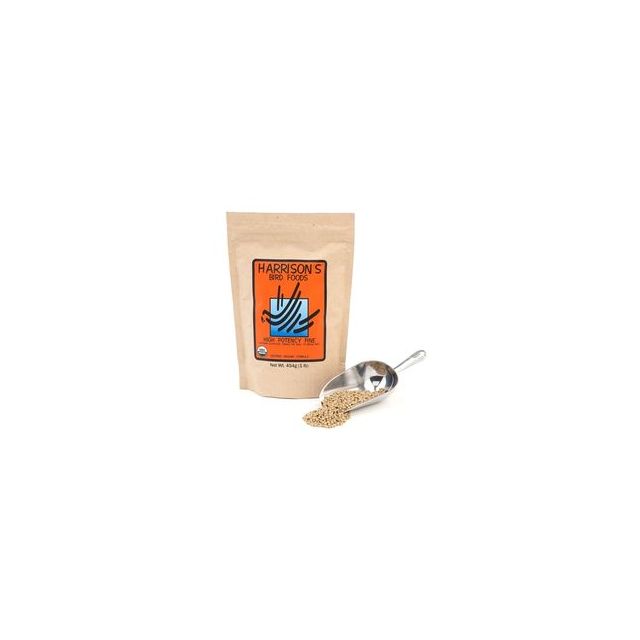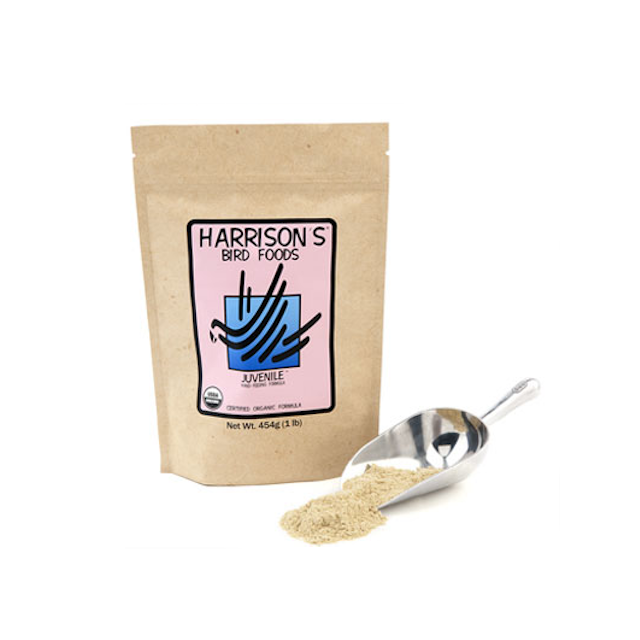Bird food
At the foundation of a healthy bird is balanced bird food. In birds, many health problems are caused by dietary mistakes. Deficiencies in certain vitamins and minerals can cause serious issues. When birds are given mixed bird food, they often pick out the treats and leave the rest, resulting in a diet that is too one-sided. It is therefore important to understand what the optimal food is for your bird. Pharmacy4pets helps you choose the best food for your bird.
What do birds eat in the wild?
Depending on the species and size of the bird, the diet of birds in the wild consists of a greater or lesser proportion of seeds, nectar, fruits, nuts, insects, and leaves. Birds almost never restrict themselves to one type of food; the variety ensures they get all the necessary nutrients. Nature is very clever: when birds are molting or breeding, they eat differently, for example, more protein-rich food, than when they are in the ‘rest phase’. Their diet can also vary with the seasons. This is related to the availability of food such as seeds and fruits, but also to their needs: birds overwintering in cold areas need more energy and therefore fat in winter, and when they are laying eggs, their need for calcium is higher.
What is good bird food?
Good bird food meets the needs of a specific bird species at a specific stage of life. It contains all the necessary vitamins, minerals, proteins, and fats in the right proportions, and it is also tasty. Since there are so many different birds, there is no one-size-fits-all bird food, but rather many different types.
Birdseed
Most birds kept in aviaries are seed eaters and are fed a seed mixture. That sounds logical, but unfortunately, birds often lack important nutrients such as vitamins A & E, calcium, and essential amino acids (the building blocks of proteins) in this way! This can be explained by the fact that birds in the wild eat many more different seeds, including unripe seeds that have a very different nutritional value than the ripe and long-stored seeds from seed mixtures. In addition to seeds, birds in the wild often eat other things like fruits and insects. Also, birds can pick out the seeds they like best from the mixed birdseed (selective eating) and leave the healthy vitamin pellets that make the food ‘complete’, resulting in a very one-sided diet.
Pellets
The solution to providing birds with all the necessary nutrients in the right proportions is to feed pellets. Pharmacy4pets has chosen pellets from the highly reputable brand Harrison’s Bird Food, which offers bird food for different species of birds of various ages that perfectly matches their individual needs. Bird food from Harrisons Bird Foods is certified organic, free from pesticides, free from molds and mycotoxins, free from artificial colorings and flavorings, and free from preservatives.
For every bird, whether sick or healthy, breeding, molting, large or small, there is bird food that meets that bird’s needs. For hand-fed chicks, there is Harrison’s Juvenile, Harrison's Adult Lifetime Super Fine is specifically for adult small birds like canaries, finches, lovebirds, and cockatiels. For larger healthy birds like cockatoos and Amazon parrots, Harrison’s Adult Lifetime Coarse is perfectly balanced. Sick birds are also taken into consideration; Harrison’s Recovery Formula was developed for them. In the table below, you can see exactly which food best suits your bird.
|
Young / hand-fed |
Adult, healthy, not breeding, not molting |
Molting or breeding |
Sick/recovering |
Snack |
|
|
Small: e.g. canaries, finches, lovebirds, budgies, doves, and cockatiels* |
Harrison’s Juvenile / Harrison’s High Potency Mash / High Potency Super Fine |
Harrison’s Adult Lifetime Mash /Harrison's Adult Lifetime Super Fine |
Harrison’s Recovery FormulaHarrison’s High Potency Mash / High Potency Super Fine |
Harrison’s Power Treats |
|
|
Medium: e.g. lories, cockatiels, lovebirds, doves* |
Harrison’s Power Treats |
||||
|
Medium-large: e.g. cockatoos and Amazon parrots* |
Harrison’s Recovery Formula / Harrison’s High Potency Coarse |
Harrison’s Power Treats |
*Certain bird species such as African grey parrots, macaws, palm and Moluccan cockatoos, and golden conures can always be given High Potency. This also applies to very active birds, underweight birds, and birds in cold climates. Also, in the first six months after switching from a seed mix, High Potency is the best choice.
Treats for birds
Pellets should be the main food. Up to 10-15% of the daily portion of food can consist of, for example, fruits, seeds, insects, suitable for what your bird likes and what its original diet consists of. This addition is not necessary; the pellets are complete, but your bird will likely appreciate a little variety now and then, and for training your bird, you may need something different from its daily food. Harrison’s Power Treats are a healthy snack for your bird.
Food enrichment
In the wild, birds spend a large part of the day foraging for food. In the aviary, there is often always a bowl of food ready, so your bird doesn’t have to forage, which can lead to boredom and behavioral problems. It is therefore advisable and fun to stimulate the foraging behavior of the bird by making food more challenging. For birds that forage a lot on the ground in nature (e.g., cockatiels, budgies, doves, and chickens), part of the food can be scattered among the bedding. For other species, food can be offered in toys, cardboard boxes, toilet paper rolls, or wood with a hole in it. The ‘work’ for food has a very positive effect on your bird’s well-being.
Switching from a seed mix to pellets
Now that you have read about the benefits of pellet feeding for your bird, you may want to switch from your old mixed bird food to Harrison’s Bird Food. And that is often a challenge. Many birds do not like to eat things they have not known since they were young. Due to the fast metabolism of birds, not eating or eating insufficiently quickly leads to problems. Small birds can die if they have not eaten for one day. So, transitioning must always be done carefully!
Tips to make the switch smooth and safe:
- Weigh your bird daily until at least a week after the complete transition. If there is more than 10% weight loss, provide unlimited access to the old food and contact your vet.
- Check the droppings. If your bird is eating too little, it will produce fewer droppings.
- Choose the right pellet size for your bird’s size. You may break the pellets into smaller pieces during the first few days.
- Ensure pellets are always available.
- Offer unlimited amounts of the old food three times a day for 15 minutes. After this, remove the bowl and discard seeds that have fallen to the bottom.
- If the bird visibly eats pellets, one of the three seed meals can be omitted (while monitoring body weight and droppings).
- If the bird’s weight and droppings do not change significantly after omitting the second meal, the third seed meal can also be omitted.
- Offering pellets on a white sheet of paper or a flat mirror on the bottom of the cage sometimes makes them more appealing.
- Offer the pellets in a playful way to tame birds.
- The pellets can temporarily be mixed with something tasty and sticky like a banana. Also, moistening the pellets can make them more attractive.
- Watching others eat encourages eating: Some birds are stimulated to eat when they see the owner or other birds eating. You can pretend to eat the pellets yourself and then offer some to your bird.
The importance of good and complete bird food cannot be underestimated. Many health problems in birds are related to dietary mistakes and can be prevented by providing your bird with good nutrition. If you have a question about bird food or other products from Pharmacy4Pets, please contact us.












